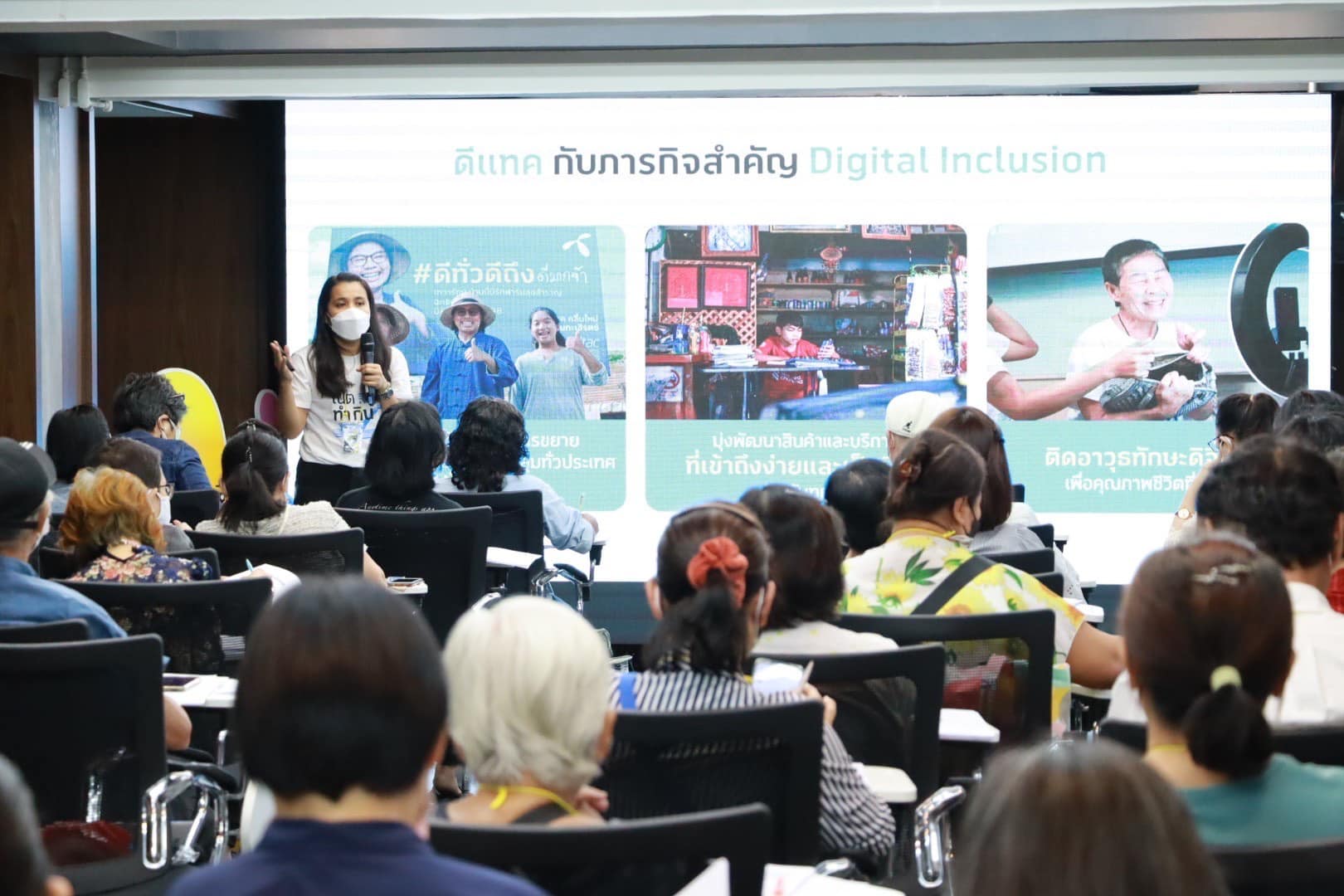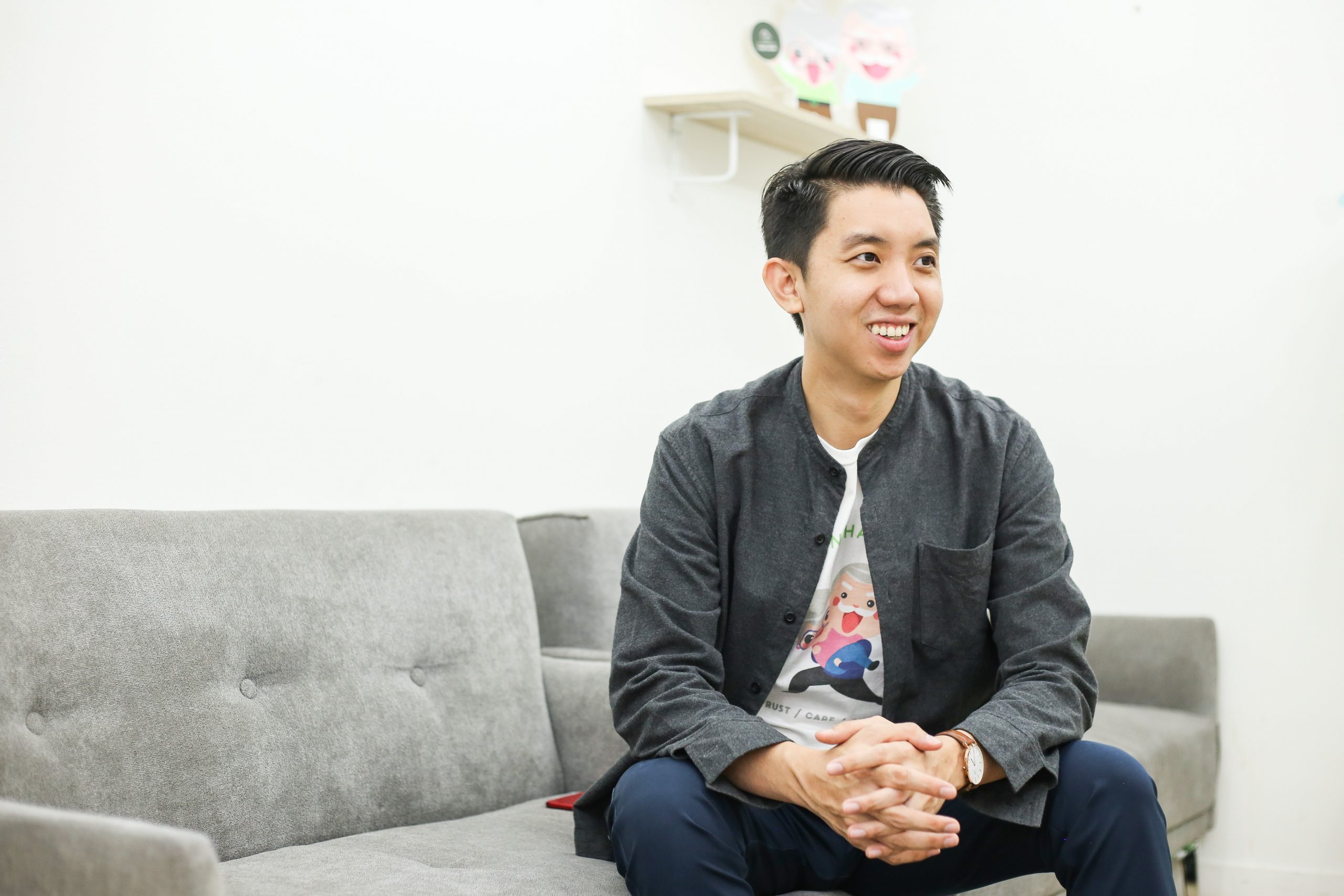Thailand has become a full-fledged aging society since 2021. Its elderly population (those over 60 years old) now accounts for about 20 percent of the total population, and that number is expected to rise to more than one third or about 20 million people.
To better understand the so-called “silver tsunami,” dtacblog spoke to Thanakorn Phromyos, CEO and Co-founder of YoungHappy, a social enterprise that works to promote active aging and is a partner of dtac. He shared with us his inspiration in starting the social enterprise and the ambition to help seniors stay engaged, active and happy.
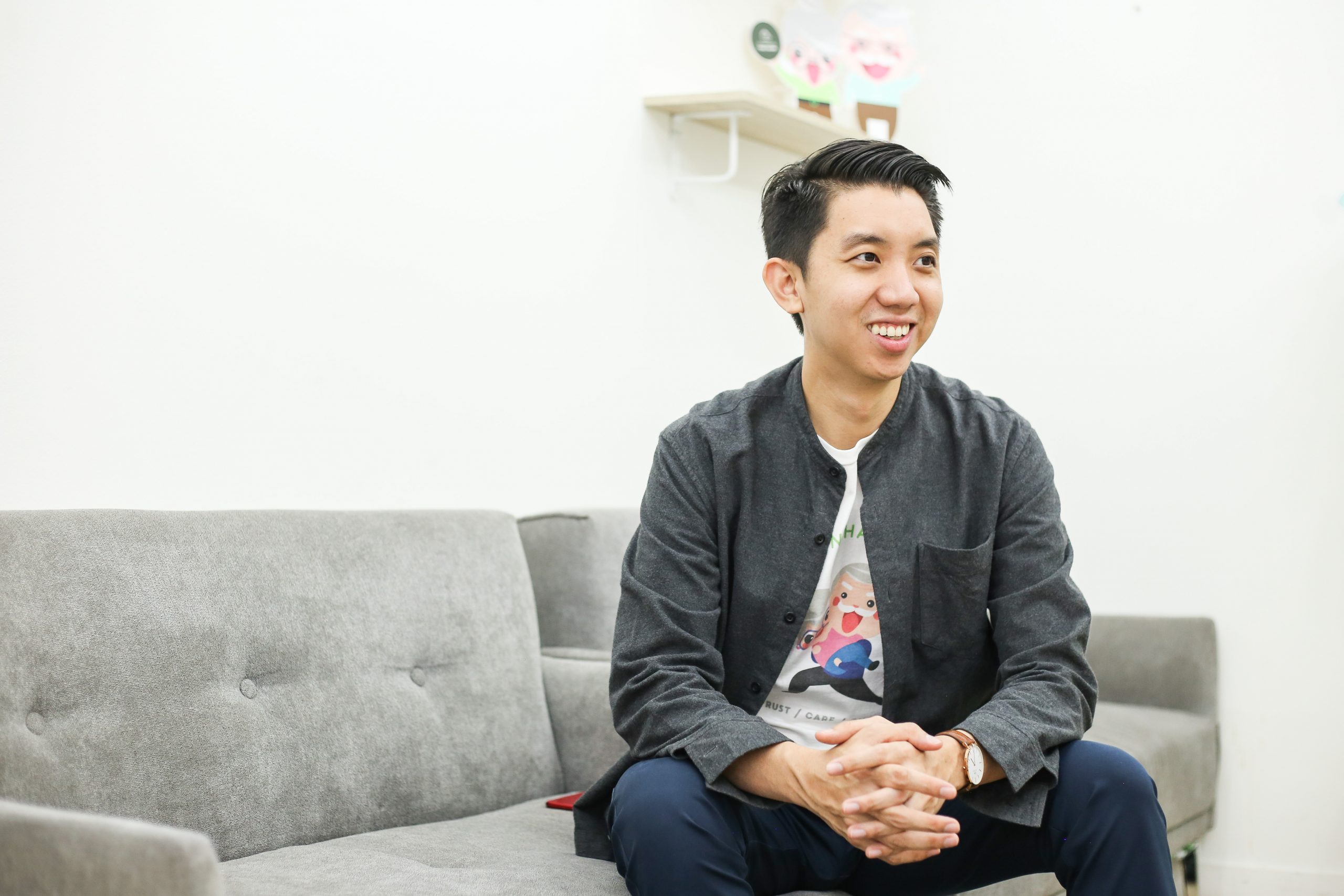
Social Enterprise
As an only child, Mr. Thanakorn, a graduate in aerospace engineering, wanted to become financially successful in order to take good care of his parents. But after his father retired, he started noticing that his father grew much older and started losing pride in himself. This, combined with his keen interest in solving social issues, inspired him to begin his journey as a social entrepreneur.
“I’m always interested in finding solutions to social and environment issues, and I have participated in several volunteer programs,” he said. “One day I came across this book by Muhammad Yunus, a Bangladeshi banker and economist who won the Noble Prize for founding the concepts of microfinance and microcredit and learned that we can solve social problems through the model of social enterprise.”
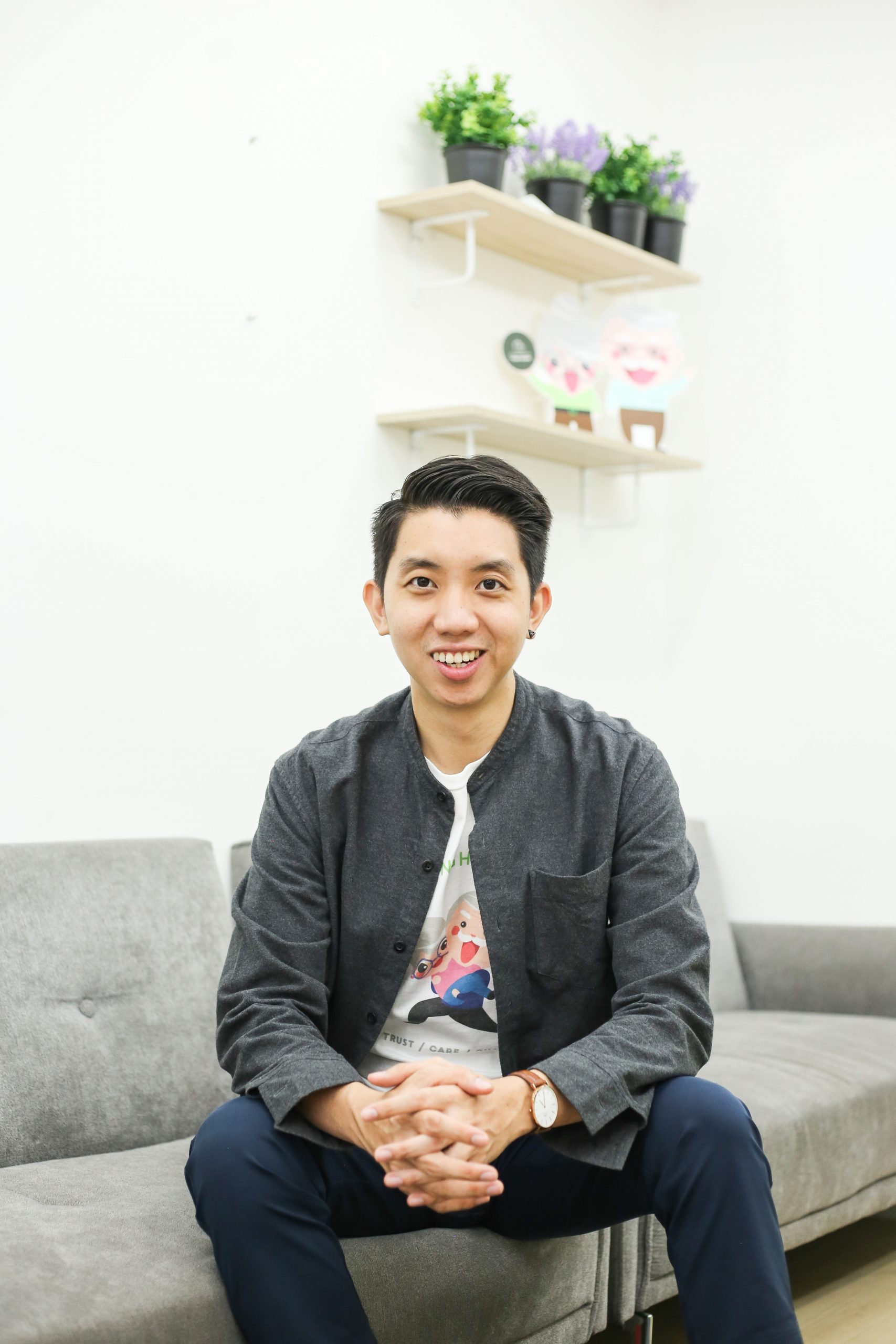
Mr. Thanakorn and the co-founder Nada Tansaswat, who is now his wife, started their journey by volunteering to teach elderly how to use smartphones. They would visit government complexes and charity foundations to do so, gaining better insights into the elderly population along the way.
Today, the co-founders and their 30 employees work tirelessly to connect the elderly through various platforms, from mobile applications and social media channels, to physical events.
“Bangkok doesn’t have enough public spaces. That’s why older people are often seen hanging out at places like food courts,” he said. “Wouldn’t it be better if we create more spaces that suit their needs?”
According to data from the BMA, more than 60 percent of elderly residing in Bangkok experience some mental health issues, which can dramatically impact their physical wellbeing. That’s why the core values of YoungHappy is to help the elderly lead fun, independent, and purposeful lives—and this has remained their focus for the past four years.
From Pain to Power
In Thailand, nuclear families have quickly replaced extended families in the past decade, as explained by Mr. Thanakorn. Individuals are automatically forced to become more self-independent, and all this is happening without adequate social safety nets and despite the rising cost of living. As a result, senior family members are often seen as burden for families barely staying afloat.
“Trends suggest that the number of older people living alone continues to rise significantly, similar to what’s going on in Japan,” he explained. “But Thailand is facing a crisis where its people are getting old before getting rich enough to retire. There are more than 17 million workers who are not registered in the social security system and have no access to state welfare.”
According to Mr. Thanakorn, senior people who take good care of their physical and mental wellbeing can delay their being bed-ridden for at least five years, resulting in a lower medical expense at the average of 15,000 per person per year. But to build a sustainable aging society, support from both government and private sectors in designing and developing products and services that are elderly-friendly is critical.
“People tend to think elderly population are old and idle, but in reality, many of them are still healthy and have potential to do much more,” he said. “At YoungHappy, we apply the Active Aging Index[1], a framework proposed by the World Health Organization, to design and evaluate what we do. It ranges from health and secure living to social participation and lifelong learning. But at YoungHappy, we focus on the latter two.”
Evaluations show that the active-aging score of people who have joined the YoungHappy community for longer than six months increases by 18 percent on average. However, most of its members are middle-class Bangkokians who are determined to find a new life purpose and enjoy learning new things. Now Mr. Thanakorn and his team are working to expand their mission to the regions.

Digital Upskilling the Elderly
YoungHappy is in line with dtac’s ambition to drive a digitally inclusive society and narrow the digital divide, especially among fragile populations. Recently, they co-hosted regular live sessions to teach elderly to use a smartphone. They also partnered with the Digital Economy Promotion Agency (DEPA) and the Internet Foundation for the Development to launch dtac Net for Living program to digitally upskill 250 small-scale entrepreneurs aged over 50 years old in the five regions. The goal is to help the participants, especially those nearing the retirement age and living alone, to build new streams of income and become independent.
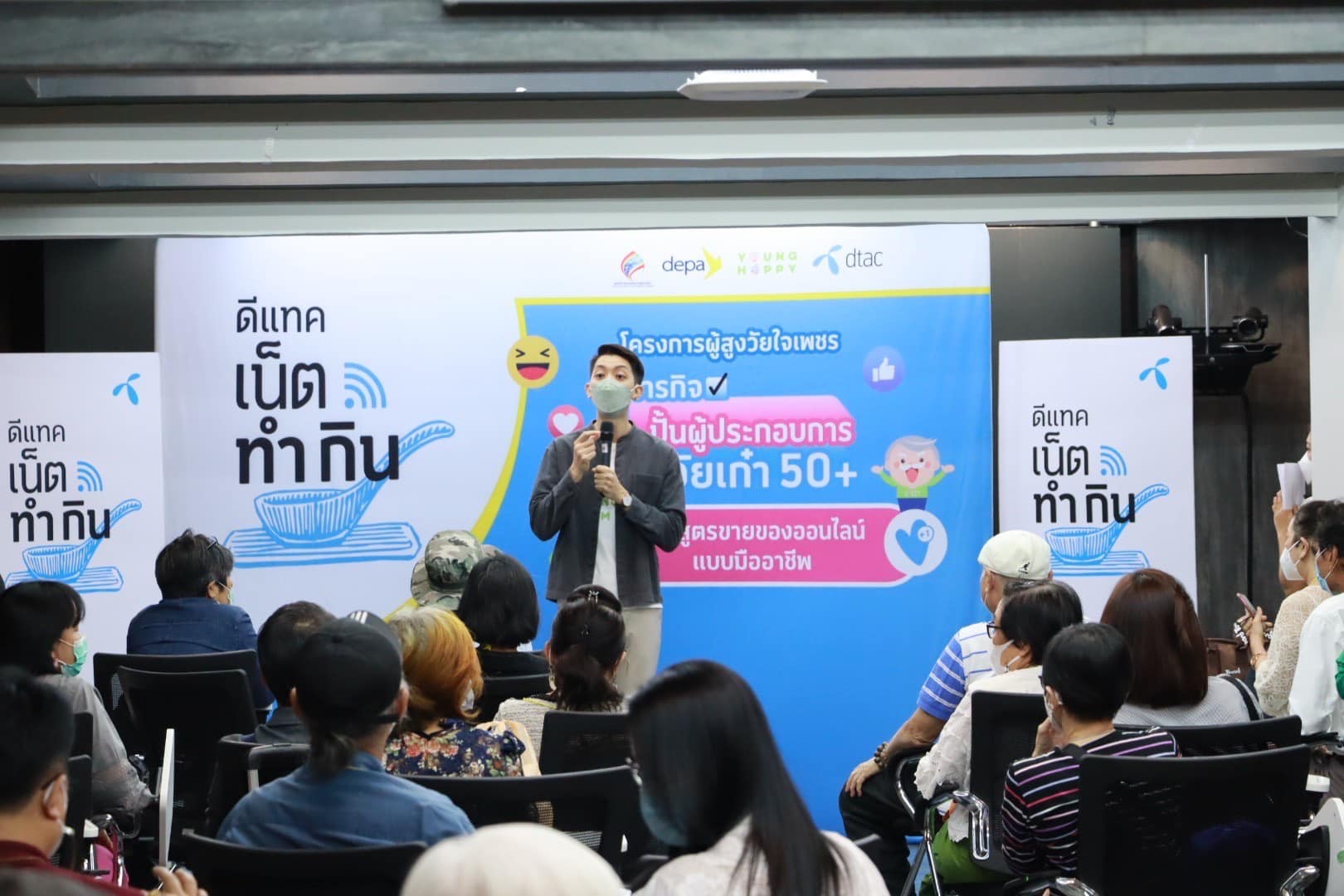
“We have worked with various industry players, but this is the first time we join forces with a mobile operator,” Mr. Thanakorn explained. “dtac empowers our community members through digital upskilling, teaching them to use a smartphone from the very basic. These live sessions receive very positive responses with many regular viewers.”
In organizing workshops for dtac Net for Living participants region-wide, YoungHappy provides support in many aspects: facilitating the registration process, keeping the participants informed about upcoming activities, workshops via a LINE group and co-mentoring the workshops. They also pay very close attention to small yet important details, such as ensuring locations are easily accessible and that the food is suitable for their demographic.
“We are pleased to be part of the solution when it comes to aging society and to promote healthy and active aging,” Mr. Thanakorn said. “By working with partners like dtac, we will be able to reach a wider group of older people.”
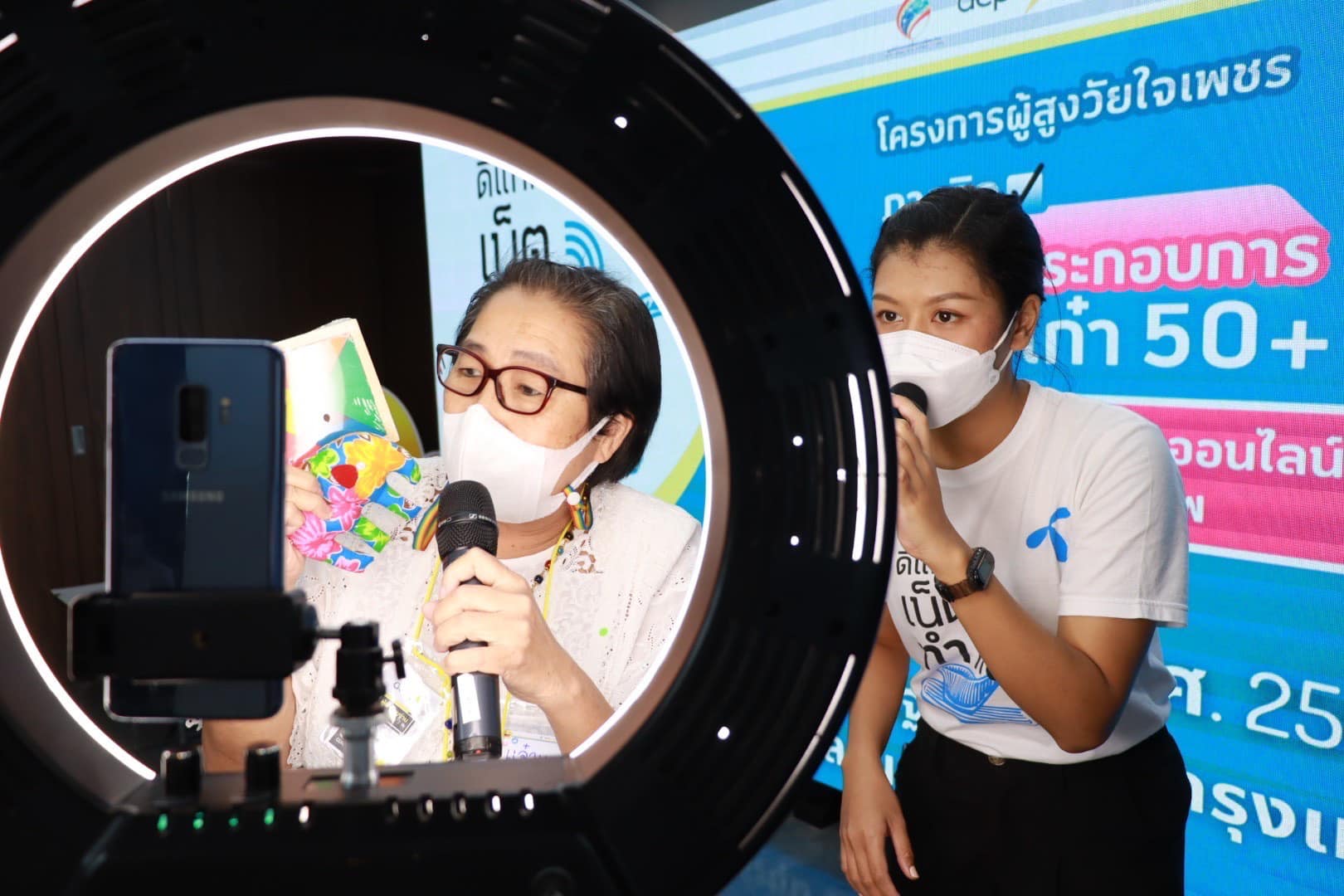
At the end of the program, dtac and YoungHappy hope to boost the income of the participants by an average of 15 percent, increase their active aging index, and help them find a new life purpose.
“In the time where digital technologies have impact on almost every aspect of life, we should leverage digital technologies to enhance quality of life among elderly, whether in terms of finance, access to essential government services, or mental and physical wellbeing,” Mr. Thanakorn said. “If we don’t come together on this, their situation may become very difficult within the next three years.”
